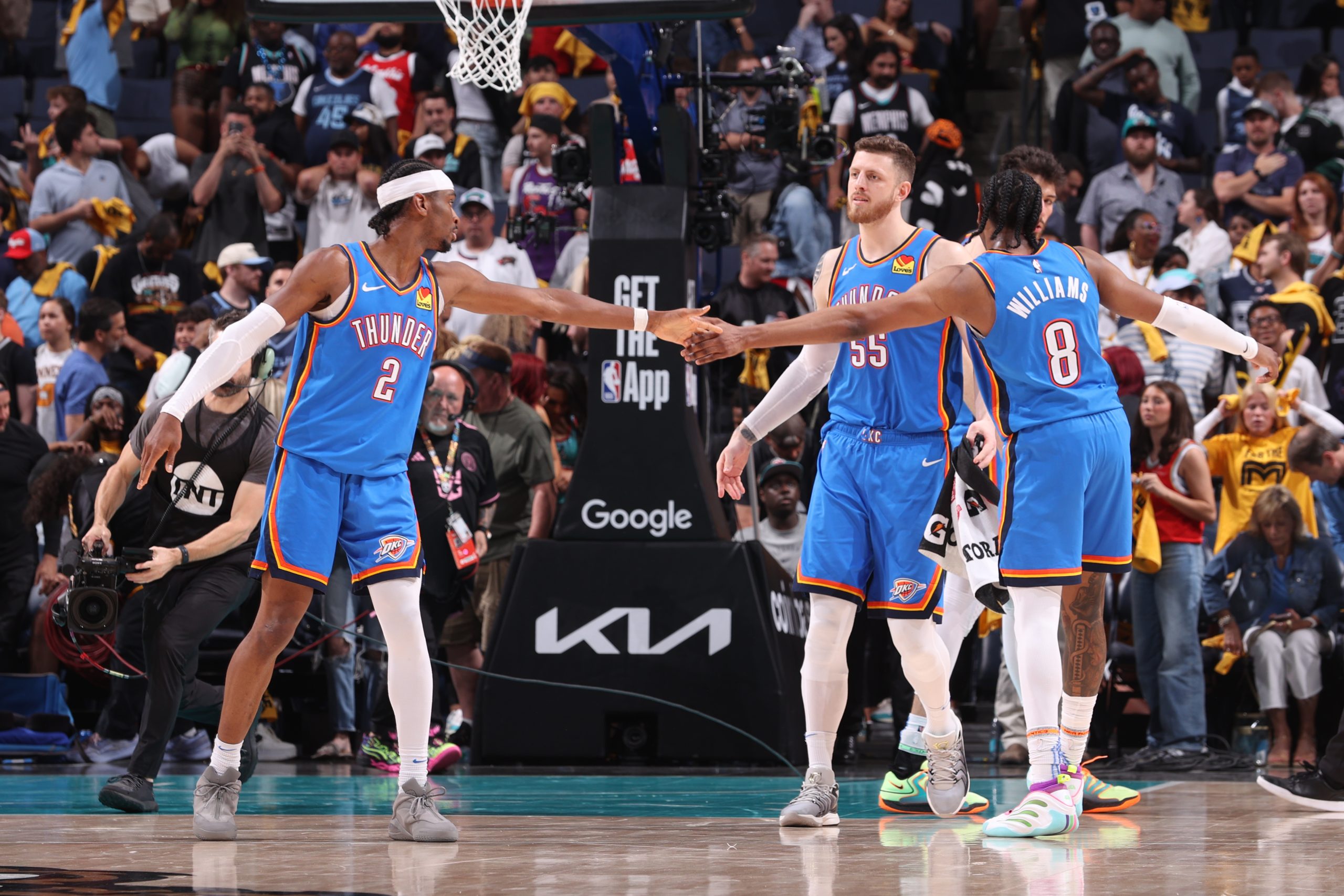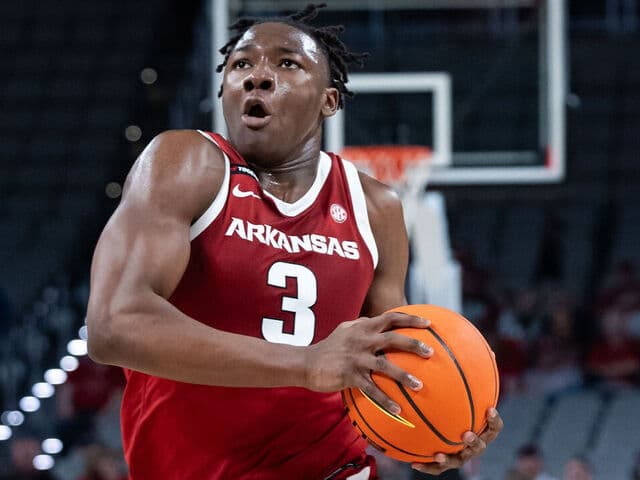The NBA Finals are set. Boston Celtics vs. Dallas Mavericks. Luka Doncic vs. Jayson Tatum. Jaylen Brown vs. Kyrie Irving.
In terms of notability, this is about as star-studded a Finals the NBA could have asked for. Combined with all the drama of Irving’s return to Boston and Kristaps Porzingis’ return to Dallas, this series is chock-full of top-tier storylines.
But atop the list, yet somehow hidden amongst the brush of the off-court drama, lies the true story of the series: Doncic and Irving vs. the Celtics.
Dallas’ backcourt has been phenomenal throughout the postseason thus far. Fresh off a series where they absolutely shredded an elite Minnesota Timberwolves defense, they’ll be heading to Boston for a matchup with another top-tier defensive squad.
Like Boston, the Mavericks’ backcourt thrives when picking on specific matchups. The Timberwolves tried to keep Jaden McDaniels on Doncic as much as possible. Through the first four games, he shot 16/35 (45.7%) against McDaniels. But he also targeted advantageous mismatches. Doncic was 4/6 against Rudy Gobert and 4/7 against Mike Conley.
This trend becomes even more prevalent when looking at Irving’s stats. Anthony Edwards was his primary matchup in Games 1 through 4, and he shot 8/15 (53.3%) against him. But in just 3:57 of matchup time against Karl-Anthony Towns and Naz Reid, Irving shot a blistering-hot 11/13.
With two big men in the frontcourt, the Timberwolves were built to beat the Denver Nuggets. When matched up with a guard-heavy Mavericks squad, they weren’t quite as effective. The Celtics don’t have that same issue.
Photo by Matthew J. Lee/The Boston Globe via Getty Images
Jrue Holiday, Derrick White, Brown, and Tatum make up one of the best perimeter defensive units in the league. In two regular-season matchups, Doncic shot 4/10 (40%) against Brown, who was his primary defender, and while Irving shot a solid 9/20 (45%) against Holiday and White combined, he was 1/6 (16.6%) against Tatum.
Doncic and Irving will almost certainly look to pick on Boston’s big men. Whether it be Al Horford or a returning Kristaps Porzingis, their goal will be to draw out the center and bring them into a one-on-one situation. Or, at the very least, force the Celtics to prevent a switch and work out of the advantages they create in that instance. Against the Celtics’ bigs, Doncic shot 5/15 (33.3%), and Irving shot 5/9 (55.5%).
Boston has been running a drop defense for long stretches throughout the playoffs. That could cause some issues. Doncic and Irving are so comfortable working slowly downhill that they should be able to find space and either hit a floater or snake their way into the paint for a bucket or a lob pass to Dereck Lively II or Daniel Gafford.
That said, the Celtics have one advantage that Minnesota doesn’t possession: Elite trailing defenders. McDaniels is an incredible defender, and Edwards and Conley are top-tier, but Boston has made their defensive money with trail guys.
Holiday is a physical, big-bodied guard who is comfortable making life hard on ball-handlers from behind, and White is one of the best trailing shot-blockers in the league. If the Celtics want to stay committed to their drop defense, those two will have to be on their A-game. The same can be said for Brown, who will likely draw the Doncic matchup, too.
Outside of Horford and Porzingis, the Celtics don’t have as many obvious weaknesses as the Timberwolves, who were forced to roll with Kyle Anderson over Towns at times for defensive purposes. Sam Hauser, Payton Pritchard, and Luke Kornet could get targeted, but Boston’s top six players should all be able to hold their own against Doncic and Irving.
Doncic and Irving have also found a ton of success screening for each other. It’s been a bit of a revelation for this Mavericks team and a big way the two stars have been able to play off each other. But the Celtics have mostly switched everything that doesn’t involve their big man in the action.
That said, look for Doncic and Irving to find an off-ball advantage where Horford (or Porzingis) ends up guarding one of them off the ball just for them to screen for the other.
:no_upscale()/cdn.vox-cdn.com/uploads/chorus_asset/file/25471985/1245038619.jpg)
Photo By Winslow Townson/Getty Images
That leaves the more intriguing piece of the puzzle: how will the Celtics attack Doncic and Irving on offense?
For as great as Doncic and Irving are, their defense leaves something to be desired. Both have turned things up a notch in the playoffs. They’ve bought in to Jason Kidd’s defensive system, and Doncic, in particular, has had some really impressive individual defensive moments during the postseason. But they still aren’t amazing.
The Celtics have made their money this season by mismatch-hunting. Getting Tatum and Brown on smaller players, drawing out big men onto the perimeter and attacking downhill, and bullying guards in the post have all been effective methods of offense.
Led by Tatum, Boston will almost surely look to go after Doncic and Irving. Doncic’s foot speed will be tested by Tatum, Brown, and Boston’s guards. Irving’s stature will be thrown to the wolves in the post by Brown, Holiday, and the Celtics’ bigs. If the Mavericks are going to rely on those two to carry their offense, Boston should make them work on the other end, too.
This Mavericks backcourt might be the best in the league. There is no way to fully stop them. Boston has elite perimeter defenders up and down the roster, but sometimes, tough shots just fall. But what the Celtics can do is look to slow them down.
By wearing them down on the other end, keeping up their own defensive pressure, and preventing Doncic and Irving from getting the switches they want, they should be able to hinder Dallas’ guard tandem.
And when they inevitably have their offensive explosion, it will be up to the Celtics to match it and make sure that no one else on the Mavs roster can contribute that day. Because sometimes, when the best players have it going, that’s all a team can do.





